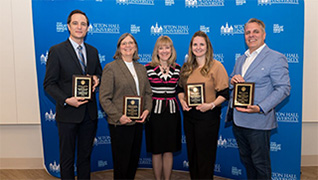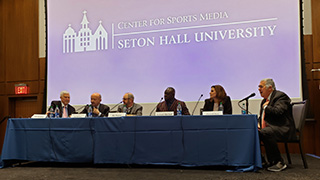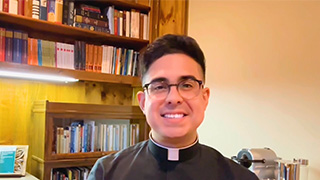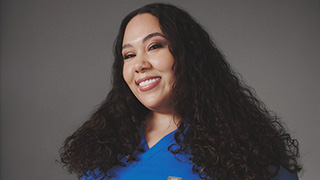Faith and Science in Dialogue: Fr. Laracy's Induction
Monday, July 15, 2019
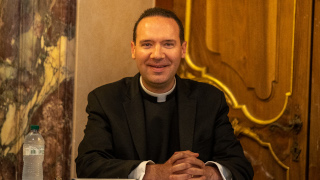
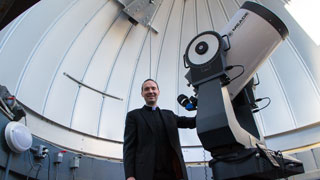
In the context of the conference, Father Laracy also received the 2019 Ranulph Glanville Award for excellence in relating Second-Order Cybernetics to Bernard Lonergan's philosophy. Ranulph Glanville (1946 –2014) was a significant Anglo-Irish cyberneticist. Father Laracy presented a paper that he co-authored with Dr. Marlowe, Msgr. Richard Liddy (Catholic Studies), and Dr. Edgar Valdez (Dept. of the Core) entitled "Was Bernard Lonergan a Second-Order Cyberneticist?" Father Laracy also delivered two lectures entitled "Epistemology and Metaphysics in Interdisciplinary Communication: Insights from Ian Barbour and Bernard Lonergan, SJ" and "Philosophy and Second-Order Cybernetics as a Second-Order Loop: Lonergan's Epistemology, Ontology, and Methodology" (which was co-presented by Dr. Marlowe).
About Catholic Studies:
The Catholic Studies Program at Seton Hall University offers an innovative, interdisciplinary
curriculum for students of any creed who are interested in deepening their knowledge
of Catholicism's rich intellectual tradition and living heritage. Combining the study
of history, philosophy, theology, literature, art, sociology, and other disciplines,
Catholic Studies focuses on the church's dialogue with culture and encounter with
the world. Students interested in Catholic Studies have the option to pursue a major,
minor, or certificate that complements and enhances the university's other degree
programs and fields of study. Over 20 years the academic program and its variegated
activities have stayed true to and fulfilled the Catholic mission and vision of the
University.


